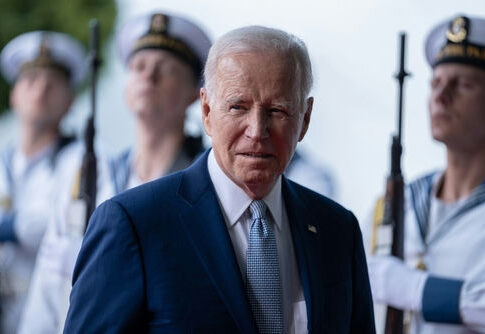In a sweeping rebuke of the previous administration, a new Trump-appointed task force claims the federal government systematically targeted Christians under Biden, igniting debate over the future of religious liberty in America.
Trump Administration Responds to Alleged Anti-Christian Bias
The Trump administration moved swiftly in February 2025 to address what it describes as a pattern of anti-Christian bias by federal agencies under the Biden administration. At the National Prayer Breakfast, President Trump announced the creation of the Task Force to Eradicate Anti-Christian Bias, appointing former Attorney General Pam Bondi as chair. The executive order establishing this task force was framed as a direct response to years of what Trump and allies call systematic targeting of Christians in America’s institutions. Supporters argue this action reasserts long-neglected constitutional protections for faith communities and traditional values.
The initial report from the task force, released in February, claims to document “numerous instances” of anti-Christian treatment by agencies such as the Department of Justice, FBI, Department of Education, and Health and Human Services. Among the most cited examples is the FBI’s 2023 internal memo labeling “radical-traditionalist” Catholics as potential domestic terror threats. Though the memo was later withdrawn after public backlash, faith leaders argue it signaled dangerous government overreach and a willingness to target religious Americans for their beliefs. The report also highlights the federal government’s tepid response to a surge in vandalism and violence against Christian institutions during the Biden years, suggesting a double standard in protecting faith-based organizations.
Federal Policies and the Erosion of Religious Liberty
Task force findings extend beyond isolated incidents, pointing to broader policy trends that they say undermined religious liberty. Critics of the Biden administration cite the Department of Education’s effort to roll back religious-liberty protections for faith-based campus groups and the Equal Employment Opportunity Commission’s aggressive enforcement of rules regarding gender identity—policies that some Christian organizations claim forced them to choose between their beliefs and government funding. The Department of Health and Human Services’ restrictions on faith-based foster care providers are also flagged as examples of regulatory hostility that disproportionately impacted Christian families and service organizations. Many conservatives view these policies as emblematic of a “woke” agenda that puts progressive ideology ahead of the First Amendment.
One incident that sparked particular outrage among Christians was the declaration of March 31, 2024—Easter Sunday—as “Transgender Day of Visibility.” Faith-based groups interpreted this as a direct slight to the nation’s Christian majority and evidence of a disregard for traditional American values. The task force’s report argues that, taken together, these actions reflect a pattern of federal hostility toward Christianity under Biden, rather than isolated missteps.
Divided Reaction: Defending Liberty or Privileging One Faith?
The launch of the task force and the release of its report have drawn sharp lines between supporters and critics. Conservative religious leaders and advocacy groups praise the initiative as a long-overdue corrective, arguing that years of neglect and, at times, open hostility from the federal government have eroded constitutional protections for Christians. They assert that defending the free exercise of religion is essential not only for believers but for all Americans who value liberty and limited government.
However, secular organizations like the Freedom From Religion Foundation warn that the task force risks privileging Christianity over other faiths and undermining the separation of church and state. Legal scholars critical of the task force question the methodology and intent behind its findings, suggesting the report’s partisan framing could inflame culture war divisions rather than foster true religious freedom. These critics caution that policies favoring one religious tradition may undermine pluralism and trigger costly legal battles over civil rights.
What’s Next for Religious Liberty in America?
With the task force now conducting broad reviews of federal agency practices and soliciting input from faith-based organizations, its findings are likely to shape executive and legislative actions in the coming months. Annual and final reports will recommend changes intended to strengthen religious liberty and address perceived biases in federal policy. For Christian families and organizations who felt abandoned in recent years, the Trump administration’s moves represent a return to core constitutional values and a renewed defense of the rights that make America exceptional. At the same time, the debate over these actions—whether restorative or partisan—will likely remain central to national discussions about faith, freedom, and the proper role of government.
As the administration presses forward, the future of religious liberty in the United States will depend on whether policymakers can balance robust protections for faith with the constitutional commitment to equality and pluralism. For many conservatives, this task force is a critical step in ensuring that government never again becomes a tool for silencing traditional American values or constitutional freedoms.
Sources:
DOJ task force finds ‘numerous instances’ of anti-Christian government bias under Biden
FACT SHEET: President Donald J. Trump Eradicates Anti-Christian Bias
After Prayer Breakfast, Trump creates task force to root out anti-Christian bias
FFRF: Trump’s faith office anti-Christian bias task force will privilege religion
Eradicating Anti-Christian Bias | The White House

